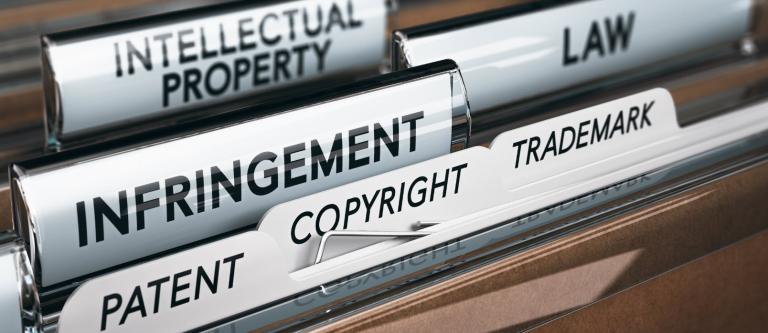
1.- Hechos.
El Tribunal de Justicia resuelve sendas cuestiones prejudiciales planteadas por el Tribunal de empresas francófono de Bruselas y por el Tribunal de Distrito de Luxemburgo sobre el uso por parte de la plataforma de venta en línea de una marca de la Unión Europea sin el consentimiento del titular de la misma para productos idénticos a aquéllos para los que esta marca está registrada.
Las cuestiones prejudiciales tratan de determinar si a la luz del artículo 9.2 del Reglamento 2017/1001 (i) el uso de un signo idéntico a una marca registrada en un anuncio presentado en un sitio de internet de venta en línea es imputable al operador del sitio como consecuencia de la combinación de ofertas propias del operador del sitio con las de terceros vendedores o el hecho de que el operador ha desempeñado un papel activo en la elaboración del anuncio o que el anuncio forma parte de la propia comunicación comercial de tal operador y (ii) si el envío al consumidor de un producto provisto de un signo idéntico a una marca registrada sin el consentimiento del titular de la misma, constituye un uso imputable únicamente al expedidor si este tiene un conocimiento efectivo de la colocación de dicho signo en el producto o si dicho expedidor informa al consumidor final que se encargará de dicho envío luego de haberlo almacenado o si el expedidor es usuario del signo en cuestión si ha contribuido previamente de manera activa a la exhibición de un anuncio del producto provisto con dicho signo o ha registrado el pedido del consumidor final a raíz de dicho anuncio.
2.- Pronunciamientos.
El tribunal dicta una sentencia en la que establece que el artículo 9, apartado 2 del Reglamento 2017/1001 debe interpretarse en el sentido de que el uso de un signo idéntico al de una marca en un anuncio presentado en un sitio de internet de venta en línea para productos idénticos a aquéllos para los que está registrada la marca, sin el consentimiento del titular de la marca y cuando terceros vendedores ofrecen dichos productos para su venta en dicho sitio de internet, es imputable al operador del sitio si un usuario normalmente informado y razonablemente atento de ese sitio establece un vínculo entre los servicios de ese operador y el signo en cuestión, lo que ocurre, en particular, cuando, habida cuenta de todos los elementos que caracterizan la situación, ese usuario podría tener la impresión de que es ese operador quien comercializa, él mismo, en su propio nombre y por cuenta propia, los productos provistos de ese signo.
Es pertinente a este respecto que dicho operador utilice un modo de presentación uniforme de las ofertas publicadas en su sitio de Internet, mostrando al mismo tiempo los anuncios de los productos que vende en su nombre y por cuenta propia y los de los productos ofrecidos por terceros vendedores en dicho mercado, que incluya su propio logotipo de distribuidor de renombre en todos esos anuncios y que ofrezca a los terceros vendedores, en el marco de la comercialización de los productos provistos del signo en cuestión, servicios complementarios consistentes, en particular, en el almacenamiento y el envío de dichos productos.
3.- Comentario.
En el marco de la Unión Europea, la sentencia es de crucial trascendencia pues viene a establecer la responsabilidad directa de la plataforma de venta en línea en caso de infracción marcaria, a partir de los mecanismos de publicidad, almacenamiento y entrega de los productos infractores de la referida plataforma de venta en línea, al no ser posible para un usuario medio, distinguir entre los productos comercializados directamente por la plataforma de venta en línea de los comercializados por terceros a través de la plataforma de venta en línea.
La sentencia va más allá del esquema de responsabilidad habitual de las plataformas de venta en línea, a las que usualmente se les imputa una responsabilidad indirecta frente a este tipo de situaciones, como facilitadores de las conductas infractoras que solamente ejecutan terceros, con obligaciones de remoción y responsabilidad directa derivada solo a partir del conocimiento efectivo de la infracción en cuestión, en base a su consideración de prestadores de servicios de la sociedad de la información.
La sentencia, por tanto, se alinea con el artículo 17 de la Directiva (UE) 2019/790 en cuanto a la responsabilidad directa de los prestadores en línea frente a las infracciones en materia de propiedad intelectual.
Nota: Estimado lector este comentario jurisprudencial procede del Anuario Elzaburu. Usted podrá acceder al resto de comentarios del Anuario que se hallan publicados en el portal de Elzaburu (https://elzaburu.com/) para lo cual solo tendrá que incluir en el apartado Buscar 🔍 del portal el término Anuario Elzaburu para así poder acceder a los contenidos ya publicados.
VERSIÓN EN INGLÉS
Trademark infringement on online sales platform. Judgment of the Court of Justice of 22 December 2022, Louboutin (C-148/21 and C-184/21)
1.- Background.
The Court of Justice has ruled on two requests for a preliminary ruling made by the Brussels Companies Court (French-speaking) and by the Luxembourg District Court concerning the use by an online sales platform of a European Union trademark without the consent of the proprietor of the mark in respect of goods identical to those for which the mark is registered.
The requests for a preliminary ruling seek to determine whether, in the light of Article 9.2 of Regulation 2017/1001, (i) the use of a sign identical to a registered trademark in an advertisement displayed on an online sales website is attributable to the website operator as a result of the combination on the website of the operator’s own offers and those of third-party sellers or the fact that the operator has played an active role in the preparation of the advertisement or that the advertisement forms part of the operator’s own commercial communication and (ii) whether the shipment to the final consumer of goods bearing a sign identical to a registered trademark without the consent of the proprietor of the mark, constitutes use that is attributable to the shipper only if the shipper has actual knowledge that the sign has been affixed to the goods or if the shipper has informed the final consumer that it will carry out the shipment after having stocked the goods or if the shipper is a user of the sign in question if it has previously made an active contribution to the display of an advertisement for the goods bearing that sign or has taken the final consumer’s order on the basis of said advertisement.
2.- Findings.
The Court rules that Article 9(2) of Regulation 2017/1001 is to be interpreted as meaning that the use of a sign identical to a trademark in an advertisement displayed on an online sales website for goods identical to those for which the trademark is registered, without the consent of the proprietor of the mark and where third-party sellers offer such goods for sale on that website, is attributable to the website operator if a well-informed and reasonably observant user of that website establishes a link between the services of that operator and the sign in question, which is particularly the case where, in light of all the circumstances of the situation, that user may have the impression that said operator is itself marketing, in its own name and on its own behalf, the goods bearing that sign.
In this regard, it is relevant that said operator uses a uniform method of presenting the offerings published on its website, displaying both the advertisements for the goods it sells in its own name and on its own behalf and the advertisements for the goods offered by third-party sellers in that marketplace, that it includes its own logo as a renowned distributor in all of those advertisements and that it offers third-party sellers, in connection with the marketing of goods bearing the sign in question, additional services consisting, in particular, of storage and shipping of those goods.
3.- Remarks.
In the context of the European Union, the judgment is of crucial importance as it establishes the direct liability of the online sales platform in the event of trademark infringement, based on the mechanisms for advertising, storage and delivery of the infringing goods of said online sales platform, as it is not possible for an average user to distinguish between the goods marketed directly by the online sales platform and those marketed by third parties through the online sales platform.
The judgment goes beyond the usual model of liability for online sales platforms, which are usually held indirectly liable in this type of situation, as facilitators of infringing conduct that is only carried out by third parties, with obligations of removal and direct liability arising only from actual knowledge of the infringement in question, based on their status as providers of information society services.
The judgment is therefore in line with Article 17 of Directive (EU) 2019/790 as regards the direct liability of online providers for intellectual property infringements.
ElDerecho.com no comparte necesariamente ni se responsabiliza de las opiniones expresadas por los autores o colaboradores de esta publicación









